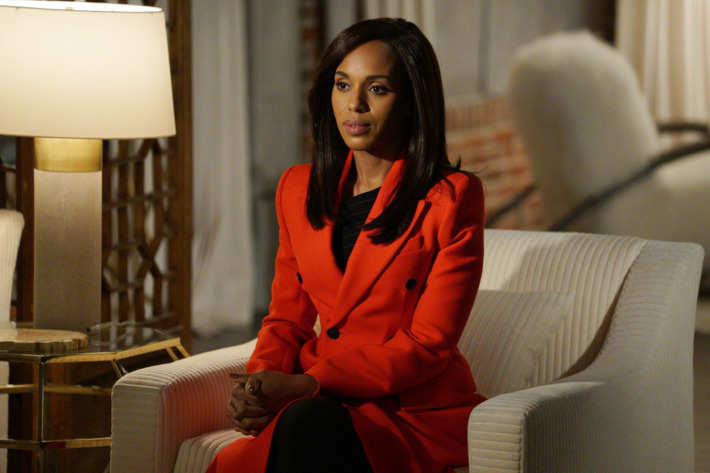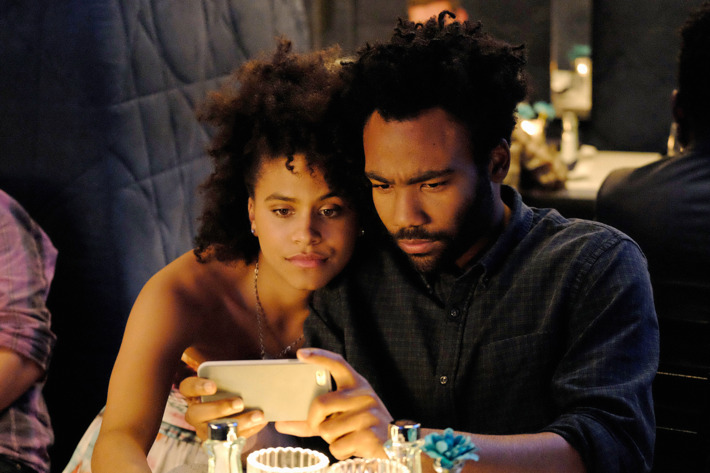In theaters for barely a month, Ryan Coogler’s Black Panther has already smashed the industry’s expectations at the box office, surpassing all but six films for the highest domestic gross of all time, with millions more in revenue yet to come. Worldwide, it has amassed more than a billion dollars, just ahead of the global haul of Toy Story 3. This film, with its predominantly black cast and crew, has triumphed in ways that have empowered black audiences all over the world. King T’Challa, flanked by powerful black women; the movie brazenly opening in the inner city of Oakland; a soundtrack produced by Kendrick Lamar and featuring a who’s who of top black artists —this film shined a massive spotlight on black culture.
But as the spectacular dust settles on the roads of Wakanda, studio executives are left to grapple with a fundamental question: was Black Panther’s monumental success just a flash in the pan — or is it a sea change?
In addition to its place in the sprawling Marvel Cinematic Universe, Black Panther falls under the sub-genre of speculative fiction known as “afrofuturism.” Like its comic book source material, the film depicts a world in which blackness was never compromised by whiteness. Works rooted in Afrofuturism spend a lot of time imagining an alternative for Pan-Africa and its place in society. When you place Black Panther alongside other notable black projects currently happening, you get the sense that we may finally be getting a real taste at a vision of blackness that is allowed to be defined by black people.
There are at least 30 film projects either centered on blackness or starring black talent on the horizon. Right now on television, there are at least 10 black-centered projects, not even counting reality TV where black narratives have been dominating for at least a decade. In music, rap artists are usurping traditional mainstream pop on the Billboard Hot 100, soul and R&B are having a moment, and 2018 was the first year not one white male artist or band was nominated for Album of the Year at the Grammys. The hottest attractions in Washington D.C. are the work of the two black artists commissioned to paint Barack and Michelle Obama’s official presidential portraits, which now hang in the National Portrait Gallery. Black Twitter is a pronoun, and it has a proclivity for steering the conversation in top cultural debates. We are in the midst of a black renaissance in art and culture.
A Black Renaissance is upon us
The first black renaissance began on the streets of Harlem, a direct result of the Great Migration. During the dawn of the 20th century, black people — seeking greater employment opportunities and a richer quality of life — made their way from the South to midwestern and northern cities. It didn’t take long for their art and creative energy to produce some of American culture’s biggest touchstones: Josephine Baker, who dazzled audiences from stages all over the world; Duke Ellington, who jazzed up the classical piano forever; Langston Hughes, who captured the essence of the American dream in his poetry.
In the mid 1980s through the late 1990s, we witnessed another renaissance of sorts in the entertainment industry. Between now-defunct networks like UPN and The WB, there were numerous television shows starring black actors. Rap music saw its ascent, and some of black Hollywood’s biggest names — Will Smith, Vivica Fox, Gabrielle Union, Halle Berry — peaked. By the mid to late 2000s, though, you’d be hard-pressed to find black centered projects beyond the margins and niche markets. And even during both of these heightened moments of black culture, the blackness portrayed on screen or broadcast on air was largely subjected to the interpretations, edits, and whims of the white executives who controlled their wide release.
We are today finding ourselves once again in the middle of a resurgence of black art, black culture, and black power. Black-centered projects —which is to say an entertainment or creative project that is either produced by a predominantly black team or that centers around black narratives and black culture — are no longer being relegated to the margins.

The triumphant arrival of this renaissance could be credited to Shonda Rhimes and Scandal, a show starring Kerry Washington about a black woman single-handedly cleaning up the messes made by Washington D.C.’s elite. Olivia Pope, played by Washington, was a woman who was taking orders and not asking questions by day, and seducing presidents by night, all with an efficient ferocity many black viewers recognized but was a novelty for mainstream audiences. Pope is emotional, sexy, angry, and imperfect, all while leading a team. She is an unabashed and uncompromising black woman, and that was something mainstream television hadn’t seen since Claire Huxtable or the leading ladies of Living Single.
Scandal is also known for being one of the first shows to be live-tweeted by its viewers. Twitter culture is fun to participate in, but it’s also quickly becoming yet another metric for a show’s success. It offers a rough but quick estimate of just how far a show, movie, or cultural moment is breaking into the mainstream. It’s also a way to track what viewers are feeling. A keen observer of social data could walk away with a better understanding of what the ratings, views, streams and so forth mean in terms of why a person is watching a show, or not listening to a new album.
With the success of Scandal came more opportunities. Traditional arenas are finally giving black creators the opportunity to experiment, and on their own terms. HBO provided comedians Jessica Williams and Phoebe Robinson with room to host an unconventional four-part comedy special, and shepherded Issa Rae’s Insecure to critical and ratings success. Despite backlash, Netflix made space for the comedy series Dear White People. TV writer and actress Lena Waite’s project Twenties, which follows the life of a queer black woman in her 20s, was greenlit. Riding the momentum of Get Out’s success last year —and his recent Oscar for Best Original Screenplay — a reboot of The Twilight Zone by Jordan Peele is in the works. Yara Shahidi landed a Black-ish spinoff, Grownish. Donald Glover’s genre-bending Atlanta is winning awards.
This moment isn’t contained to the screen. In music, Beyoncé — with both her self titled album in 2013 and the groundbreaking Lemonade from 2016 — redefined the visual album. Kendrick Lamar has given new meaning to award show performances. Cardi B blazed a trail to stardom and music history through social media. Artists of color outnumbered white men in the biggest categories at this year’s Grammys.
Beyond entertainment, black voices are refusing to go unheard in other arenas. In 2012 after the fatal shooting of Trayvon Martin in Florida, we saw the rise of the Black Lives Matter movement. Now, black political figures like Maxine Waters light up the internet when they stand up to their detractors, pundits like Angela Rye are unapologetic on air, and activists like Alicia Garza, Patrisse Cullors, and Opal Tometi (the creators of #BlackLivesMatter) are commanding powerful online communities.
Is this black renaissance here to stay?
Black Panther isn’t the first predominately black film project. It’s not even the first predominately black superhero movie. It’s also not the only black movie worthy of this level of promotion, budget, or general hubbub. In fact, few of these recent projects are true pathfinders.
Still, this moment feels different than the black renaissances that have come before it. An optimistic person might say it’s reflective of a bigger shift in culture altogether.
One explanation for this feeling of permanence is that so many of these shows, films, books, and artists have been embraced by wider audiences. That’s because the stories being told — though in greater dimension, and with more diversity — are universally relatable. “Some of my favorite movies are movies by straight dudes about straight white dudes,” said Pakistani-American actor Kumail Nanjiani during last month’s Oscars broadcast. “Now straight white dudes can watch movies starring me, and you relate to that. It’s not that hard, I’ve done it my whole life.”

Donald Glover’s Atlanta follows a rapper’s surreal journey through the music industry from the perspective of a pretentious Princeton dropout. Janelle Monáe’s highly anticipated forthcoming album Dirty Computer has already given queer black women an anthem with the single “Make Me Feel.” Jordan Peele’s Get Out flipped the “Guess Who’s Coming to Dinner” premise on its head, and the upcoming absurdist film Sorry to Bother You tells the story of a black telemarketer navigating blackness while climbing the career ladder in a not-too-distant dystopian future.
Diversity, as writer Kara Brown (who currently writes for the show Grown-ish) aptly said on the podcast she co-hosts Keep It, “begets diversity.” Atlanta is directed by Hiro Murai, a japanese filmmaker and music video director. Black Panther was shot by Rachel Morrison, a white queer woman who was the cinematographer for the films MudBound, Dope, and Fruitvale Station. Roles like Storm Reid’s in A Wrinkle in Time or Tessa Thompson’s in Dear White People are striving to represent multi-raced people. And black queer people like director Dee Rees (Mudbound), Yance Ford (Strong Island), and Lena Waithe (The Chi) are getting the opportunity to prove why the storyteller matters as much as the story. Compare that to another celebrated black show during the last renaissance, The Fresh Prince of Bel-Air: while the actors on screen were unapologetically black, the show’s creators were the husband and wife pair of Andy and Susan Borowitz, two white, Ivy League-educated writers.
This new kind of diversity is being supported — gradually — by the industry’s gatekeepers, as evident in the production value, the promotion, and the budgets. Black projects are receiving more resources: Ava DuVernay secured a record-setting $200 million to make her A Wrinkle In Time happen. They are being granted more leeway as well; Issa Rae’s Insecure on HBO experiments with episode and season length.
This isn’t the first time we’ve witnessed a renaissance, obviously. But it is the first time it’s coming on the heels of the first black president.
During Barack Obama’s presidency, white America witnessed the nuance and complexity of black America every day. He’s not without his faults, but Obama’s presidency was undeniably successful and largely scandal-free, despite the best efforts of threatened racists, eager to tarnish his legacy. He was, as my father puts it, “a class act.”
Seeing a black man succeed on such a large scale — literally leading the country — had an effect on the American psyche. According to the New York Times, within a year of his first inauguration, black students were performing better on tests. Midway through Obama’s final term, Psychology Today reported on studies which found that Obama had a measurable, positive effect on biases towards black people, while black people were observed feeling as though public perception of them had improved. Though it’s hard to say simply that race-relations have improved — according to the Pew Research Center, many don’t think it has — that last point, illuminated by Psychology Today, is key. Black people were empowered by watching a black President for eight years.
This Post-Obama era we find ourselves in now is confusing, to say the least. We have a new administration that is actively doing everything it can to slow and reverse the progress that marginalized communities have made. The promise gleaned from the first black presidency has been replaced by its polar opposite. And yet, if there is any truth to the old notion that art reflects the times we live in, then the defiance and resistance we’ve witnessed in the last 18 months isn’t so much a revolution as it is our evolution.
